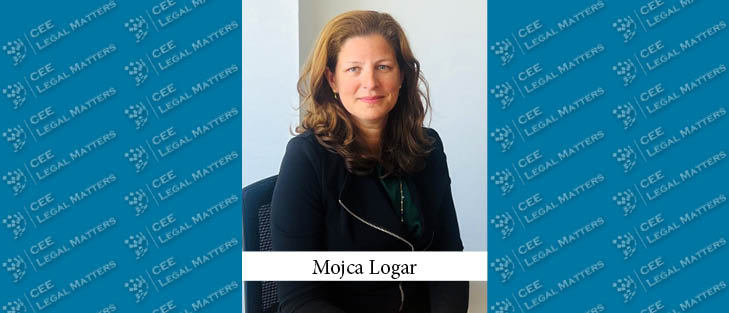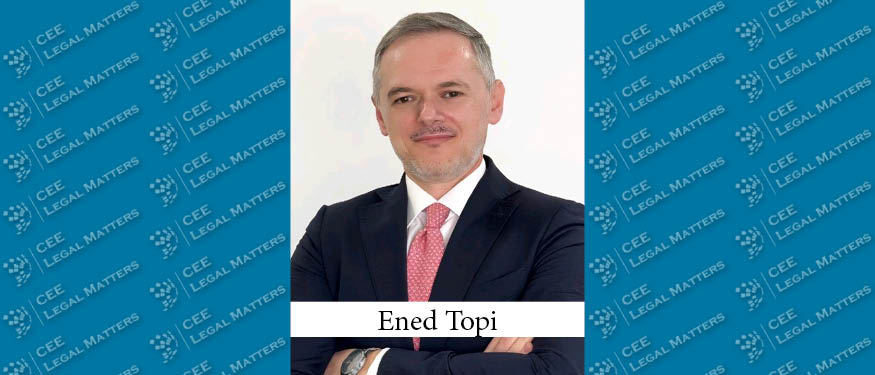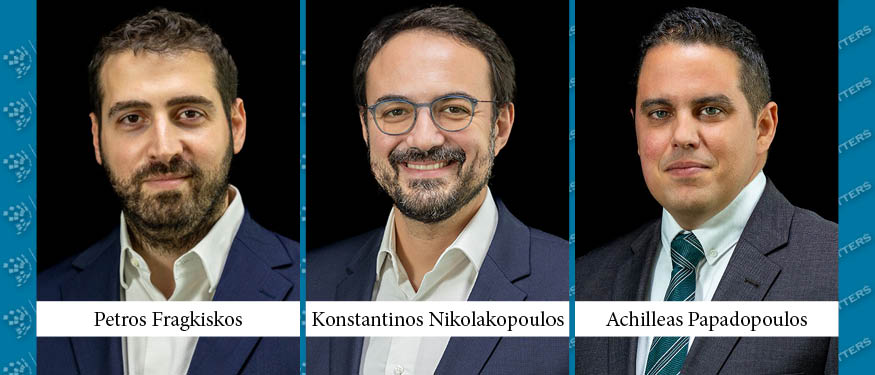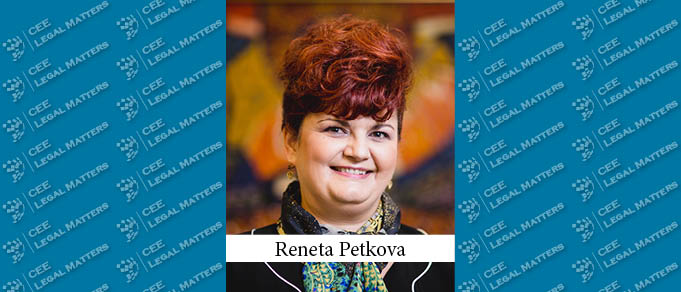Overseeing diverse sectors across multiple countries, Petrol Group Director of Legal Affairs Mojca Logar discusses the challenges and strategies in managing the group’s legal affairs and navigating complex regulatory landscapes, while emphasizing internal legal expertise and collaborating with external firms for specialized projects and new legislation.
CEELM: Tell us a bit about yourself and your career path leading up to your current role.
Logar: I graduated from the University of Ljubljana’s Faculty of Law in 2004. Even while studying, I began my professional journey in the corporate sector. Initially, I worked in the insurance industry, then moved to banking, and later transitioned to retail. Throughout my career, I continued to enhance my skills through further education. I completed my master’s degree in law from the University of Ljubljana in 2009 and passed the bar in 2011. In 2016, I also qualified as a bankruptcy administrator.
Before joining Petrol Group, I worked for Lidl Slovenia, where I was Head of Legal & Compliance. To support my role, I obtained the ICA Advanced Certificate in Business Compliance. With 20 years of experience in the corporate world, I briefly worked in the public sector but found that I thrive more in corporate environments.
When I joined Petrol, it marked a significant step forward for me. Petrol is Slovenia’s largest company, with diverse operations spanning retail, energy, and more. Beyond Slovenia, Petrol operates in multiple countries, including Croatia, Bosnia and Herzegovina, Serbia, and Montenegro. Leading the legal department across these regions was a major leap, reinforcing my decision to pursue corporate law. The dynamic nature of the work ensures there’s never a dull moment.
CEELM: What has been the most challenging aspect of your work for Petrol so far?
Logar: When I joined Petrol, I was immediately struck by the complexity of the business. Petrol operates as a parent company with a presence in numerous other companies, either as a shareholder or a participant. Understanding the company’s organization and its multifaceted nature was a significant shift from my previous roles. Petrol’s operations span various sectors – fuels and petroleum products, retail, energy, renewable energy production, mobility, and more. This diversity was markedly different from my earlier experiences in retail. Petrol’s breadth of activities was a significant change for me, incorporating elements from many sectors. I firmly believe that to be an effective lawyer, especially in a corporate setting, one must have a comprehensive understanding of the business. It’s not enough to just focus on specific clauses in a contract, a broader perspective is essential.
One of the most important things I emphasize to my colleagues in the legal department is the importance of truly understanding the business they support. I’m committed to breaking the stereotype of lawyers as obstacles. To be an effective corporate lawyer, it’s crucial to find ways to manage and mitigate risks while delivering the best legal advice. This means identifying potential risks and communicating them clearly to the relevant business teams.
CEELM: How large is your in-house team currently and how is it structured?
Logar: Currently, my team consists of 25 members, with 22 of them being lawyers. We navigate the complexities of different legislations across various countries, which adds to the excitement and challenge of the role. At the parent company, Petrol Ljubliana, I manage a team of 15, divided into smaller, specialized groups. For instance, some focus on the energy sector, others on M&A transactions, insolvency proceedings, or lawsuits. These specialized groups work closely with both Slovenian and foreign companies. Additionally, I have a team of two in each country with whom I collaborate closely. We hold regular meetings and I make it a point to visit and have in-person conversations, which fosters better cooperation, especially when significant issues arise. I stay involved in major legal matters and lawsuits, often working directly with my team or occasionally with external counsel.
CEELM: How do you decide if you are outsourcing a project or using internal/in-house resources?
Logar: We primarily handle our legal work internally because our team is highly specialized in the areas of law they cover. However, when facing new legislation or significant lawsuits, we do collaborate with external lawyers.
We partner with many external firms, predominantly in Slovenia but also internationally. The main criteria for selecting these firms include their industry-specific knowledge – they must understand our operations and business model. Additionally, they need to have strong legislative expertise and problem-solving skills. It’s crucial for them to grasp our business if they are to propose effective solutions and innovative ideas. Their responsiveness is also vital, meeting deadlines is essential for us.
After 2.5 years at Petrol, working with various law firms, we’ve developed a keen sense of which firms excel in different types of legal challenges. While some large law firms can address all topics comprehensively, I find value in collaborating with a diverse range of firms to gain varied perspectives – this diversity in legal opinions can offer fresh insights that might otherwise be overlooked.
CEELM: What has been keeping you and your in-house team busy over the last 12 months? What about the upcoming 12 months? What are you keeping on your radar that you think will impact your workload the most?
Logar: The major issue we are encountering in Slovenia is state-imposed regulations. Specifically, these regulations are related to fuel price controls. Petrol Group, which has around 600 fuel stations internationally, is the largest operator in Slovenia, where we have more than 300 petrol stations. The regulated margins are insufficient to cover operational costs, creating a significant financial burden. While other countries also have regulations, the margins in Slovenia are notably lower than the EU average or any other country in the region. This issue has persisted, and it remains a critical challenge for us. Our priority is that Petrol and other fuel distributors in Slovenia can operate sustainably while making the necessary investments for the energy transition.
This began in 2022, and we believe that these regulations have inflicted significant financial damages and continue to do so. In addition, the measures obstruct the energy transition and distort the market. As a result, we are currently engaged in a substantial lawsuit against the state. Unfortunately, in June 2024, a new regulation was enacted for the coming year, which prompts us to consider our next steps. There are also wider implications at play, in particular when it comes to adherence to the rule of law. These are very concerning. Not only was the regulation adopted without consulting the Slovenian Price Council, but we believe that the conditions for the new regulation have not been met and that the measure is not proportionate. I am working very closely with the management board on this matter. We strongly advocate for the elimination of such regulations and believe that margin setting should be left to the market.
Over the next 12 months, addressing these new regulations will be a key priority for me. We will be working in close partnership with international experts, including economic, regulatory, and legal advisors- to tackle this challenge.
CEELM: What do you foresee to be the main challenges for GCs across all sectors in Slovenia in the near/mid future?
Logar: As I mentioned earlier, the primary regulatory concern revolves around the complexity of new businesses and operations, a challenge experienced globally. Additionally, one of the critical issues is the recruitment and retention of talent, particularly in sectors like energy where specific knowledge is crucial. We are actively addressing this by focusing on not only attracting but also retaining employees through motivation and providing growth opportunities.
This article was originally published in Issue 11.7 of the CEE Legal Matters Magazine. If you would like to receive a hard copy of the magazine, you can subscribe here.

























